45 labelling of chloroplast
Chloroplasts - Structure And Functions - A Level Biology Chloroplasts are the site of photosynthesis in eukaryotic cells. They are only present in photosynthetic cells like plant cells and algae. There are no chloroplasts in animal or bacterial cells. Structure of Chloroplasts Chloroplasts found in higher plants are generally biconvex or planoconvex shaped. Chloroplasts can be found in the cells of the mesophyll in plant leaves. Draw the structure of chloroplast and label the parts. Complete answer: Following are the parts of chloroplast: 1) Envelope or outer membrane- semi-porous in nature and permeable to small molecules and ions but it is not permeable to larger proteins. 2) Intermembrane space- it is a thin space of 10-20 nanometers which is present between the outer and inner membrane of chloroplast. 3) Inner membrane ...
Label the Chloroplast - Labelled diagram - Wordwall Label the Chloroplast . Share Share by Anabrillantes34. Like. Edit Content. Embed. More. Leaderboard. Show more Show less . This leaderboard is currently private. Click Share to make it public. This leaderboard has been disabled by the resource owner. This leaderboard is disabled as your options are different to the resource owner. ...

Labelling of chloroplast
Chloroplast - Definition, Function and Structure | Biology Dictionary The word chloroplast comes from the Greek words khloros, meaning "green", and plastes, meaning "formed". It has a high concentration of chlorophyll, the molecule that captures light energy, and this gives many plants and algae a green color. Like the mitochondrion, the chloroplast is thought to have evolved from once free-living bacteria. Label the parts of the chloroplast. In the sketch of stomatal apparatus given alongside, the parts I, II, III and IV were labelled differently by four students. The correct labelling is shown in : (1) (I) guard cells, (II) stoma, (III) starch granule, (IV) nucleus. (2) (I) cytoplasm, (II) nucleus, (III) stoma, (IV) chloroplast. (3) (I) guard cells, (II) starch, (III) nucleus, (IV ... How to draw and label a chloroplast - YouTube A beautiful drawing of a chloroplast . And it will teach you draw Chloroplast very easily. Watch the video and please be kind enough to thumbs up my videos. ...
Labelling of chloroplast. Labeling Chloroplast Diagram | Quizlet A flattened membrane sac inside the chloroplast, used to convert light energy into chemical energy. Where "light reactions" take place granum stack of thylakoids lamella tubes that connect the granum chloroplast DNA non-nuclear DNA; endosymbiosis theory that chloroplasts evolved from free living prokaryotes ribosomes site of protein synthesis Chloroplast Fact Sheet: Definition, Structure, Genome, and Function ... Chloroplasts are commonly found in guard cells located in plant leaves, roughly 1-2 μm thick and 5-7 μm in diameter. Chloroplasts are oval-shaped and have two membranes: an outer membrane and an inner membrane. Between the outer and inner membrane is the intermembrane space approximately 10-20 nm wide. Chloroplast Definition, Structure, Facts And Information | Biology Topics The chloroplast structures are produced from the cells called proplastids. As such, the chloroplasts will develop from these precursor cells in the presence of light. Each chloroplast will contain various structures with each one having its specialized functions. The structure of chloroplast includes the following components: Membrane Envelope: chloroplast | Definition, Function, Structure, Location, & Diagram Chloroplasts are a type of plastid—a round, oval, or disk-shaped body that is involved in the synthesis and storage of foodstuffs. Chloroplasts are distinguished from other types of plastids by their green colour, which results from the presence of two pigments, chlorophyll a and chlorophyll b.
MoBiFC: development of a modular bimolecular fluorescence ... Both CTP-CFP and OEP7-mTRQ clearly marked the chloroplasts in transformed cells of the epidermis and mesophyll and showed a more intense fluorescence than the nucleo-cytosolic CFP (Fig. 5 B, Additional file 1: Fig. S5B). The signal for the HSP21-nYFP/HSP21-cYFP interaction in the chloroplasts was also preserved. Chloroplast Label Worksheets & Teaching Resources | TpT Photosynthesis & Chloroplast Diagram Labeling Worksheet. by. A-Thom-ic Science. 34. $1.25. PDF. A diagram of a chloroplast allows students to label the reactants, products, and locations of the light reaction and Calvin cycle during photosynthesis. Answer key included. Structure of Chloroplast (With Diagram) | Botany 1. Chloroplasts (Figs. 295-296), responsible for the photosynthesis of the plants, are the characteristic features of the cells of green plants. ADVERTISEMENTS: 2. Around the chloroplast is present a double membrane envelope. 3. Each membrane of chloroplasst is 35 to 50 Å thick. 4. Many dark-coloured grana are present. Chloroplast_Labeling_Diagram.pdf - Course Hero View Chloroplast_Labeling_Diagram.pdf from FLVS 123 at Matanzas High School. Name: Leaf & Chloroplast Diagram Directions: Label the leaf diagram and chloroplast. Stoma, Cuticle, Upper Epidermis,
Chloroplast Structure and Function in detail with Labelled Diagram Chloroplasts in green plants are oval or elliptical in shape. They have a diameter of 5 to 10 micrometers and a thickness of 2 to 4 micrometers. Chloroplasts are the 2nd largest cell organellesin plant cells. In Spirogyra, the chloroplasts are Ribbon-shaped and spirally coiled, running from one end of the cell to another. In cells of Chlamydomonas,... Chloroplast: Structure and Function - Biology Wise Structure. Chloroplasts are located in the parenchyma cells of plants as well as in autotrophic algae. They are oval-shaped organelles having a diameter of 2 - 10 µm and a thickness of 1 - 2 µm. Although their dimensions are almost similar in all plants, the algal chloroplasts show a variation in their size as well as shape. Chloroplast Translation: Structural and Functional Organization ... Chloroplasts are the characteristic organelle of plant cells. They host numerous essential metabolic pathways including photosynthesis, which makes chloroplasts the primary source of chemical energy on earth. Labeling Parts to a Chloroplast Diagram | Quizlet Labeling Parts to a Chloroplast STUDY Flashcards Learn Write Spell Test PLAY Match Gravity Created by Abby_Larson72 Terms in this set (5) outer membrane ... inner membrane ... stoma ... granum stack of thylakoids thylakoid ... YOU MIGHT ALSO LIKE... Science test 10 Terms Caycay666 Parts and Functions of the Chloroplast 8 Terms lamottas
Chloroplast- Diagram, Structure and Function Of Chloroplast Chloroplasts are found in all higher plants. It is oval or biconvex, found within the mesophyll of the plant cell. The size of the chloroplast usually varies between 4-6 µm in diameter and 1-3 µm in thickness. They are double-membrane organelle with the presence of outer, inner and intermembrane space.
Chloroplast - Wikipedia Segments with labels on the inside reside on the B strand of DNA, segments with labels on the outside are on the A strand. Notches indicate introns. With few exceptions, most chloroplasts have their entire chloroplast genome combined into a single large circular DNA molecule, typically 120,000–170,000 base pairs long.
Dispersive labelling of Chlamydomonas chloroplast DNA in (15)N- (14)N ... The dispersive labelling of cpDNA was progressive and extensive as after less than two net doublings of this DNA in (14)N-medium no significant amount of fully heavy, (15)N-strands could be detected in denatured cpDNA preparations; the average size of DNA in these preparations corresponded to 6% of the intact chloroplast genome or about 12 kbp.
Chloroplasts- Definition, Structure, Functions and Diagram Chloroplasts are a type of membrane-bound plastids that contain a network of membranes embedded into a liquid matrix and harbor the photosynthetic pigment called chlorophyll. It is this pigment that imparts a green color to plant parts and serves to capture light energy. Chloroplasts can be found in the cells of the mesophyll in plant leaves.
Explain the structure of the chloroplast. Draw a neat labelled diagram. The chloroplast is a structure which is surrounded by two unit membranes separated from one another by a space called periplastideal space. The heterogeneous nature of chloroplast is due to the presence of disc-like structures i.e., grana, in a colourless matrix called stroma. Grana are the sites for the light reaction and stroma is the site ...
Chloroplast Structure | Stroma, Chlorophyll & Thylakoid - Study.com The chloroplast structure is made up of the outer membrane, inner membrane, stroma, granum, thylakoid, lamella, and lumen. Where is chlorophyll found in the chloroplast? Green chlorophyll is found...
PDF Chloroplast Structure Color and label the grana (STACKS) dark green in Figure 1. Grana are connected to each other by structures called lamellae, and are surrounded by a gel-like material called stroma. Color and label the lamellae brown in figure 1. Color and label the stroma light blue in Figure 1. See page 104 in your book for more help! FIGURE 1-CHLOROPLAST 9.
Chloroplasts: Definition, Diagram, Structure and Function Ans: Chloroplasts are either round, oval, or disk-shaped bodies which are involved in the synthesis and storage of food and energy. Chloroplasts are divided into two types, chlorophyll a and chlorophyll b. One of the major functions of those pigments is to absorb light energy.
The synthesis and origin of chloroplast low-molecular-weight ribosomal ... Chloramphenicol inhibits the labelling of chloroplast 4.5-S rRNA in vivo, and concomitantly inhibits the processing of the immediate precursors to the 1.05 x 10(6)-Mr and 0.56 x 10(6)-Mr rRNAs, but has little effect on the appearance of label in chloroplast 5-S rRNA. DNA/RNA hybridization using 125I-labelled RNAs suggests that chloroplast DNA ...
Chloroplast: Meaning, Structure, Analogy - Embibe Fig: A Labeled Diagram of Chloroplast Chloroplast Structure Chloroplasts are roughly \ (1 - 2\, {\rm {μm}}\) thick and \ (5 - 7\, {\rm {μm}}\) in diameter and are seen in all higher plants. In different plants, chloroplasts have different shapes like some plants have filamentous or ovoid or saucer-shaped.
Draw a neat labelled diagram of a chloroplast. - Toppr Ask class 11. Oscillations Redox Reactions Limits and DerivativesMotion in a Plane Mechanical Properties of Fluids. class 12. Atoms Chemical Kinetics Moving Charges and MagnetismMicrobes in Human Welfare Semiconductor Electronics: Materials, Devices and Simple Circuits.
How to draw and label a chloroplast - YouTube A beautiful drawing of a chloroplast . And it will teach you draw Chloroplast very easily. Watch the video and please be kind enough to thumbs up my videos. ...
Label the parts of the chloroplast. In the sketch of stomatal apparatus given alongside, the parts I, II, III and IV were labelled differently by four students. The correct labelling is shown in : (1) (I) guard cells, (II) stoma, (III) starch granule, (IV) nucleus. (2) (I) cytoplasm, (II) nucleus, (III) stoma, (IV) chloroplast. (3) (I) guard cells, (II) starch, (III) nucleus, (IV ...
Chloroplast - Definition, Function and Structure | Biology Dictionary The word chloroplast comes from the Greek words khloros, meaning "green", and plastes, meaning "formed". It has a high concentration of chlorophyll, the molecule that captures light energy, and this gives many plants and algae a green color. Like the mitochondrion, the chloroplast is thought to have evolved from once free-living bacteria.
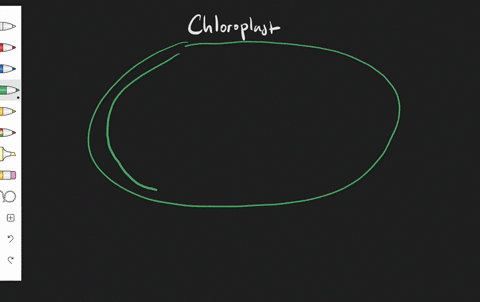
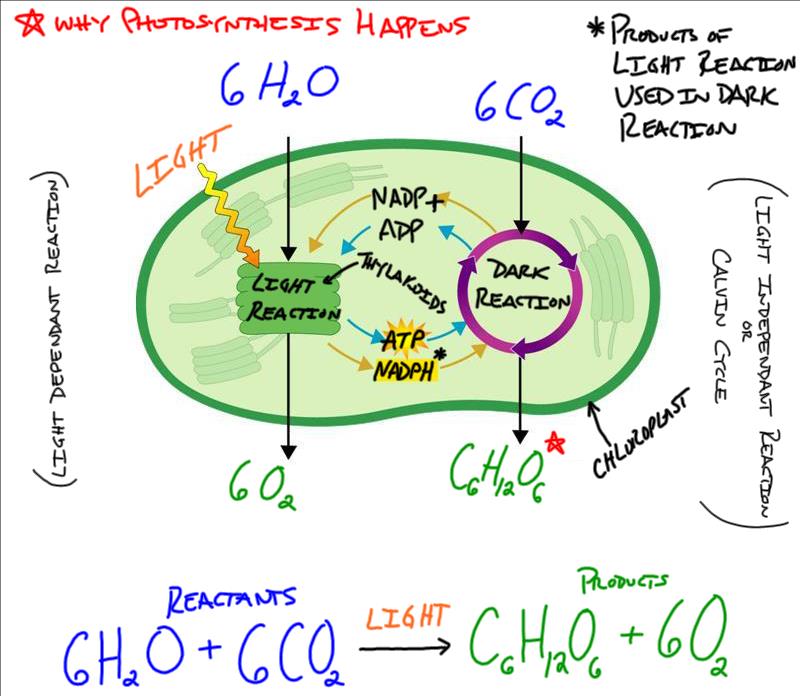
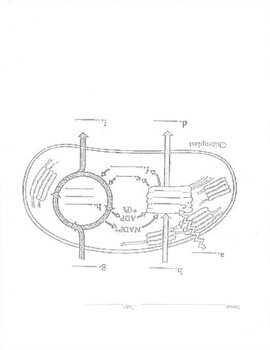




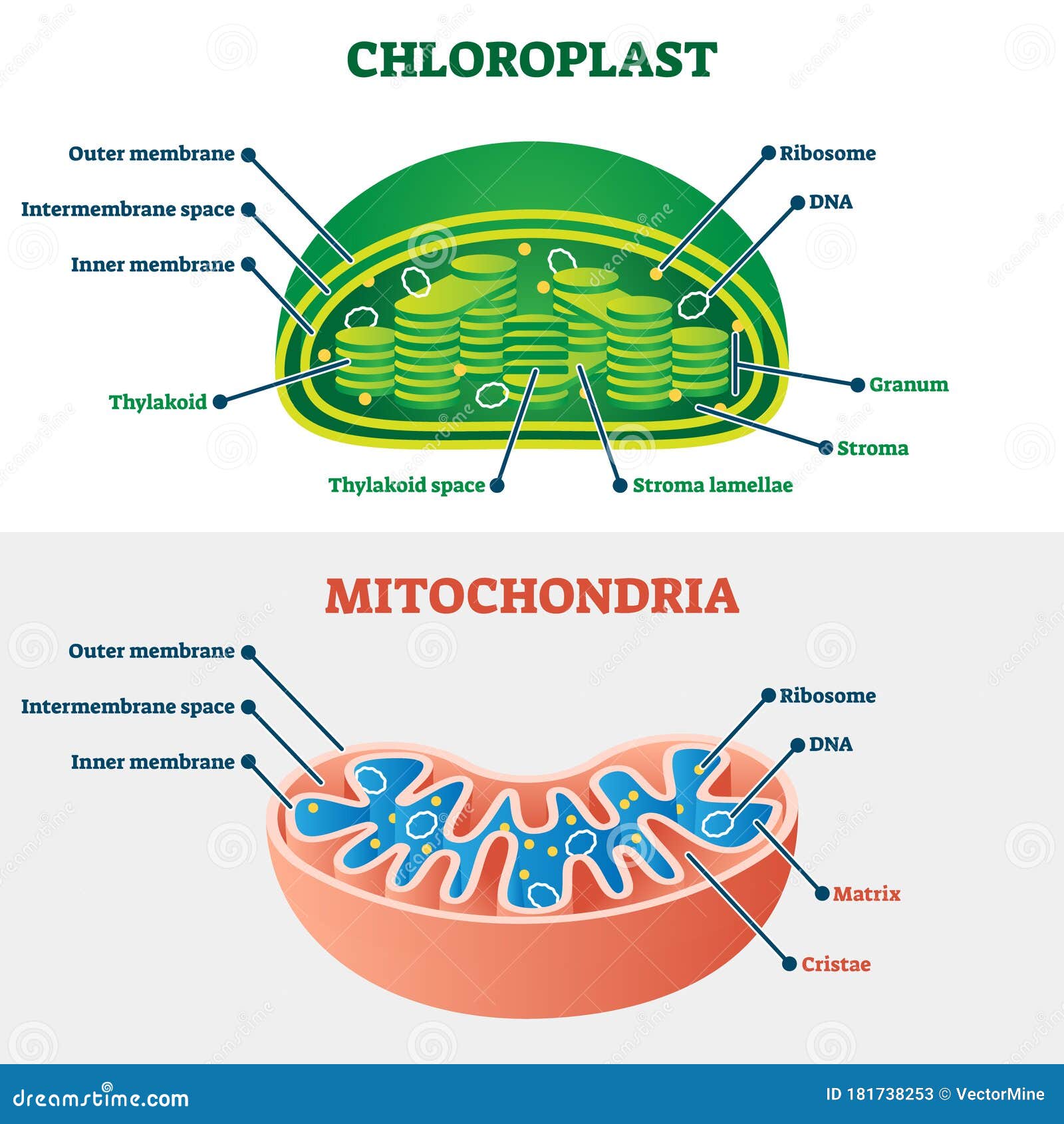








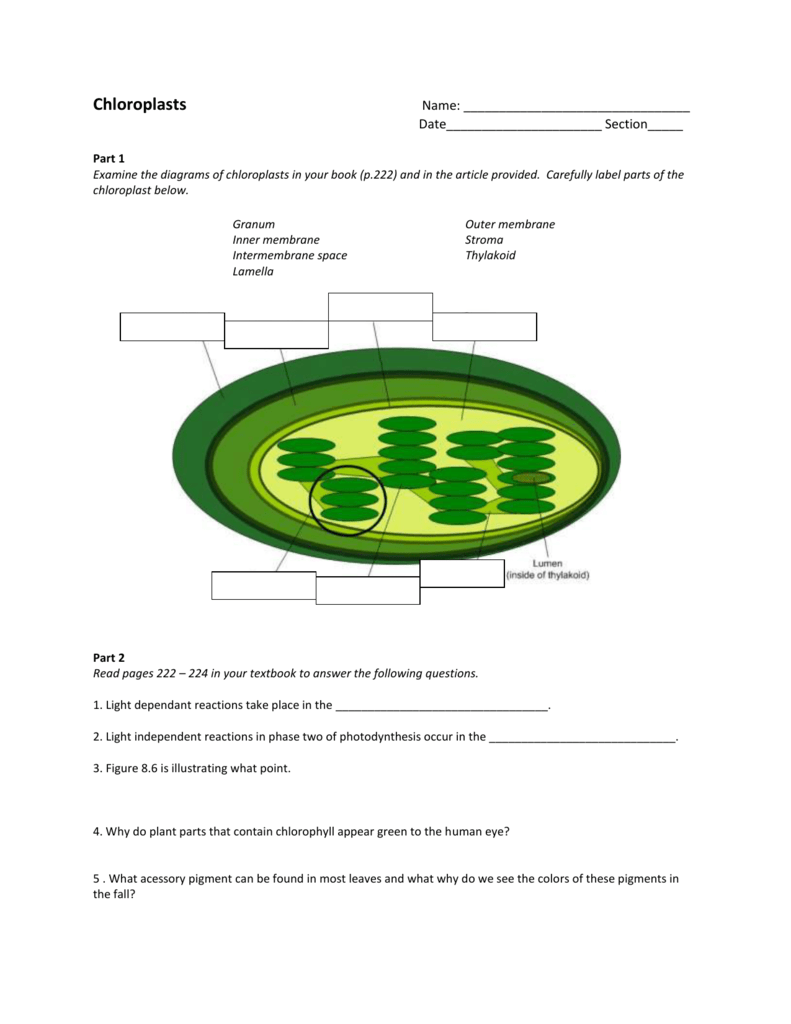


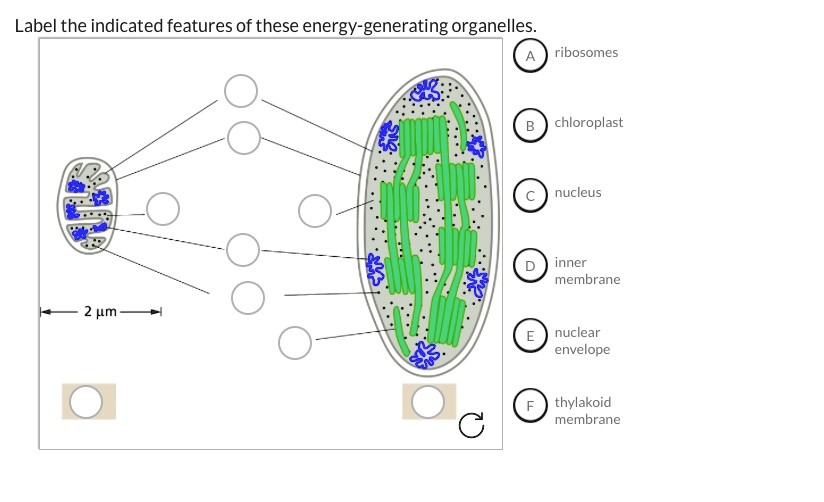
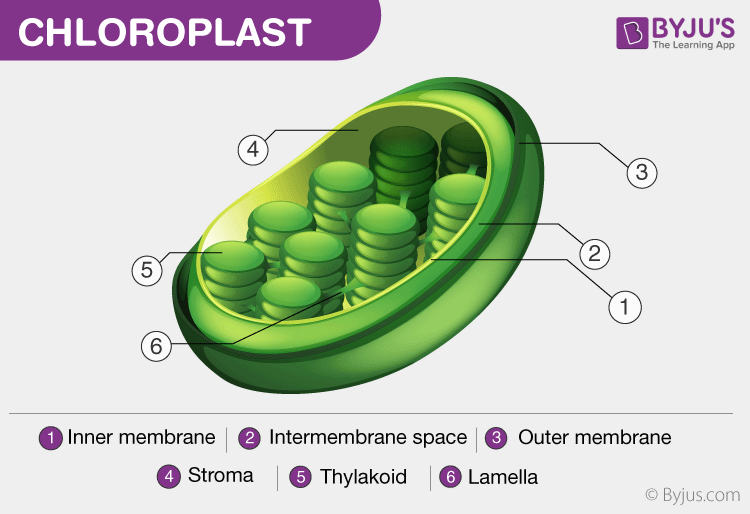
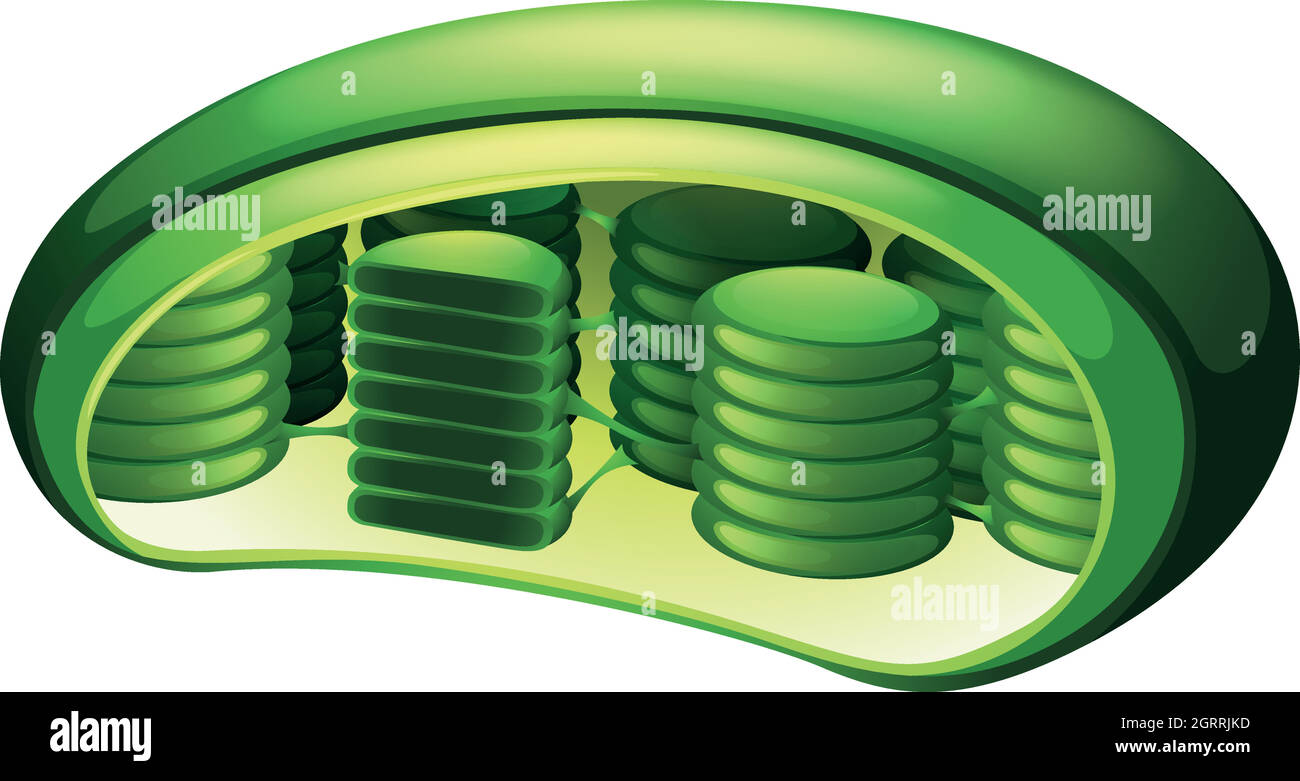





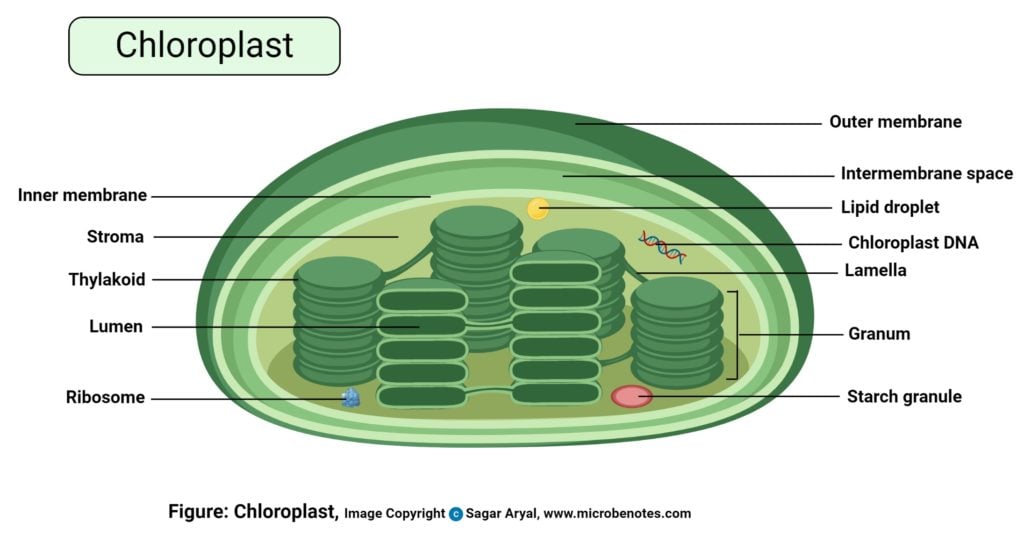

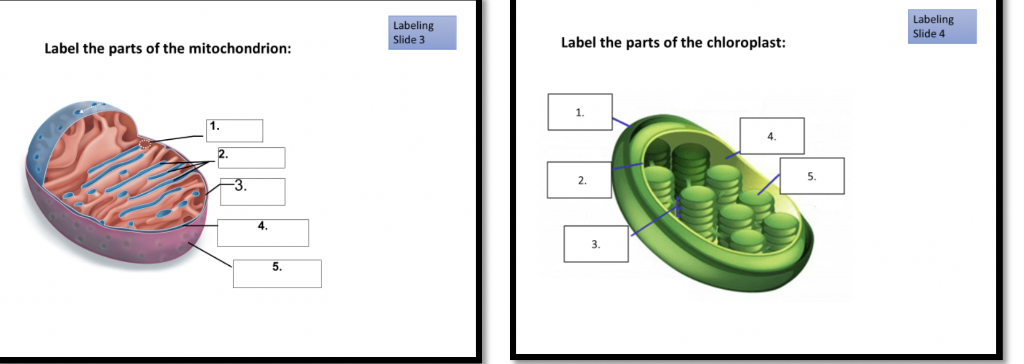




Post a Comment for "45 labelling of chloroplast"